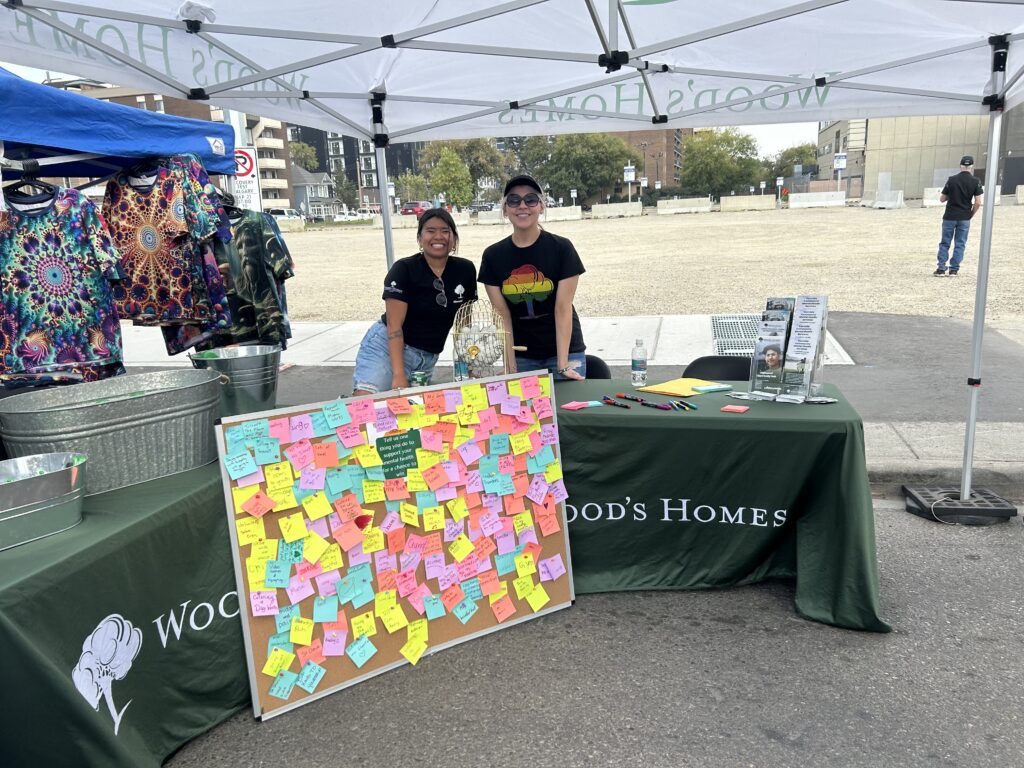Written by Inglewood Opportunity Hub Practicum Students: Isabella. V. and Kaida. M. (Bow Valley College Addiction Studies)
Alberta Recovery Week Awareness
What is Recovery Week, you may ask? Well, it is time we spend spreading awareness and celebrating addiction recovery. The purpose is to reduce stigma while promoting solutions to support different pathways to recovery, which may include services to reduce the harm or treatment options.
On September 21st, 2025, termed Recovery Day, communities and organizations across the province unite to celebrate recovery, raise addiction and mental health awareness, and break down stigma. The Calgary event features live music, local vendors, food trucks, and a health information fair that connects people to mental health resources, addictions services and wellness programs.
This Recovery Week, the Recovery Team are inviting staff at the agency, both individually and collectively, to reflect on what you can do to raise awareness for addiction recovery to better support our clients, programs, and community.
What is recovery? The action and process of change that one takes to improve their psychological, physical, and social wellbeing and health.
Recovery Capital refers to the internal and external resources that one can access and build when pursuing their recovery.
The Alberta Recovery Model is a strengths-based, person-centered approach to mental health and addiction that emphasizes:
- Hope, self-determination, and empowerment
- Holistic wellness (mental, emotional, physical, social, and spiritual)
- Client choice and active participation in care
How Recovery fits within the Inglewood Opportunity Hub (IOH) :
- A safe, welcoming space for vulnerable youth (typically ages 15-29) who may be experiencing homelessness, mental health challenges, substance use, or disconnection from supports.
- Access to low-barrier, youth-friendly services that promote autonomy and reduce stigma.
- A wraparound model of care, including mental health support, crisis stabilization, housing navigation, and skill development.
- Client-led goal setting, encouraging youth to define what recovery and stability mean for themselves.
Type of Recovery Capital | How Wood’s Homes (IOH) Builds It |
Personal Capital (Coping skills, mental health, self-efficacy) |
|
Social Capital (Relationships and support systems) |
|
Community Capital (Access to resources, services, and opportunities) |
|
Cultural Capital (Sense of identity, belonging, cultural values) |
|
Human Capital (Personal coping skills, educational access, and job readiness) |
|
Physical Capital (Access to food, housing, transportation and healthcare) |
|
Recovery Supports at the IOH:
The Inglewood Opportunity Hub (IOH) offers recovery support services to youth and young adults through its Recovery Team. The perspective shift from addiction to recovery means a focus on helping clients build recovery capital. These services include:
- Individual support (coping skills, building healthy routines and habits, wellness activities, etc.)
- Psycho-educational groups
- Community outreach
- Addiction education, training, and consultation
- Assistance with accessing detox and other treatment options
Services to Reduce Harm:
The Recovery Team at the IOH focuses on delivering services that align with the Alberta Recovery Model and aim to reduce harm for individuals who use substances. These services include:
- Providing clean use supplies
- The implementation of a substance use crisis cycle
- Return to use prevention planning
- Naloxone distribution
- Substance use education
“During recovery week I’m thinking about how more people can come together and support one another in recovery. Spreading addiction recovery awareness and celebrating it was never really heard of. It always seemed to be hidden and swept under the rug, but now it is coming into the light more. Coming and being a part of it can help spread the word and show others they are not alone, even if you have never experienced addiction yourself you can. always come and be apart whether that be volunteering and lending a helping hand can make a big impact on someone’s life and you can help be a part of the change.”
– Kaida Mcleod
“For this year’s recovery week, I would like to bring awareness to reducing stigma and reminding others that recovery is possible. For many years, stigma around addiction has prevented people from seeking the help and resources they need for a brighter future. I view Recovery Week as a way to break the stigma around addiction in a way that encourages open conversations through fun activities and overall builds a more supportive community.”
-Isabella Vera




